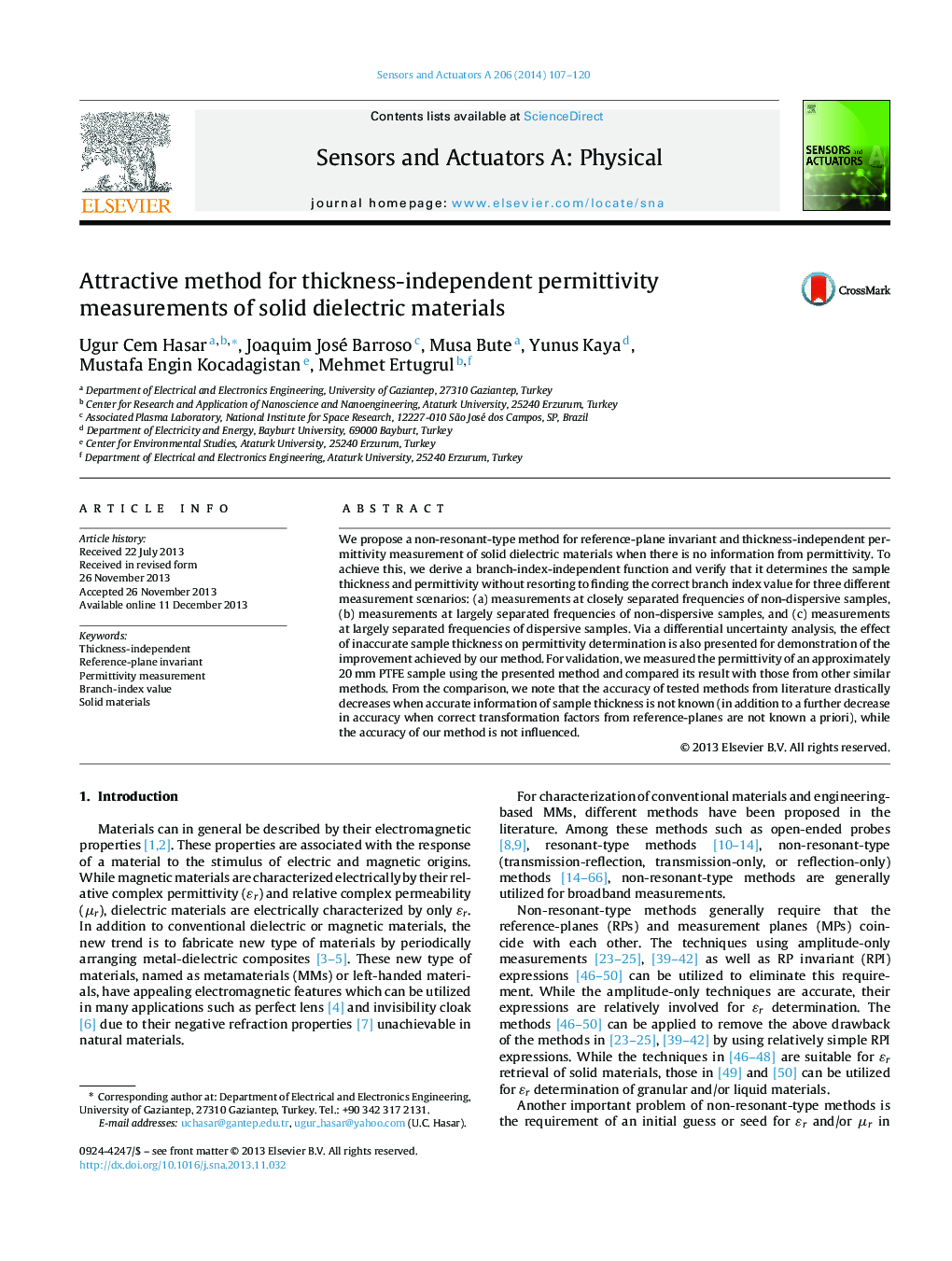| Article ID | Journal | Published Year | Pages | File Type |
|---|---|---|---|---|
| 748842 | Sensors and Actuators A: Physical | 2014 | 14 Pages |
•Thickness-independent permittivity determination of solid materials via reference-plane invariant measurements is achieved.•A branch-index-independent function involving only the complex permittivity (through the first reflection term) is derived.•The technique is tested for dispersive and non-dispersive materials using measurements at near and distant frequency points.•An uncertainty model is applied to demonstrate the importance of thickness information on electromagnetic characterization.•The accuracy of the proposed technique is comprehensively compared with that of other similar techniques in the literature.
We propose a non-resonant-type method for reference-plane invariant and thickness-independent permittivity measurement of solid dielectric materials when there is no information from permittivity. To achieve this, we derive a branch-index-independent function and verify that it determines the sample thickness and permittivity without resorting to finding the correct branch index value for three different measurement scenarios: (a) measurements at closely separated frequencies of non-dispersive samples, (b) measurements at largely separated frequencies of non-dispersive samples, and (c) measurements at largely separated frequencies of dispersive samples. Via a differential uncertainty analysis, the effect of inaccurate sample thickness on permittivity determination is also presented for demonstration of the improvement achieved by our method. For validation, we measured the permittivity of an approximately 20 mm PTFE sample using the presented method and compared its result with those from other similar methods. From the comparison, we note that the accuracy of tested methods from literature drastically decreases when accurate information of sample thickness is not known (in addition to a further decrease in accuracy when correct transformation factors from reference-planes are not known a priori), while the accuracy of our method is not influenced.
